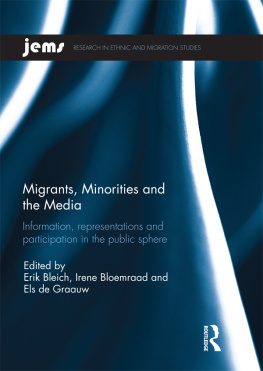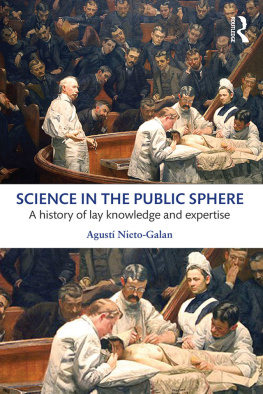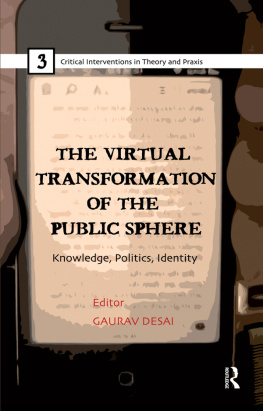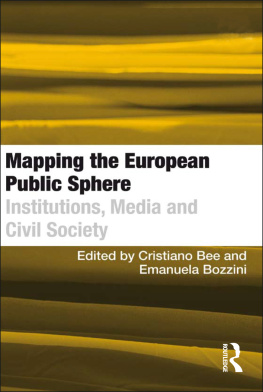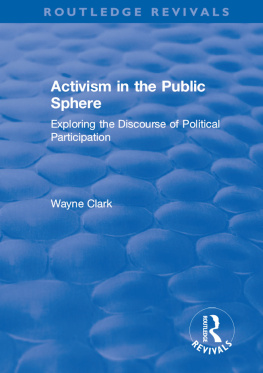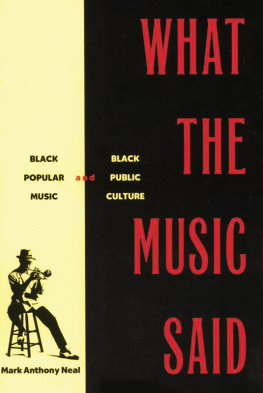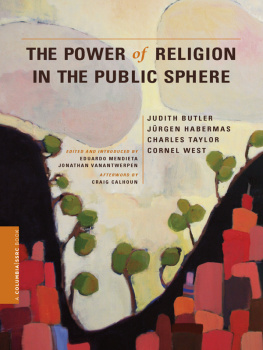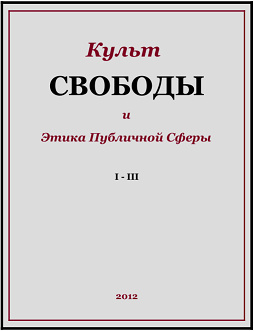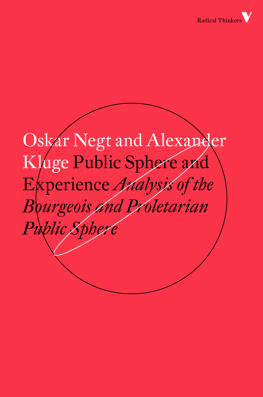Public Television for Sale
Critical Studies in Communication and in the Cultural Industries
Herbert I. Schiller, Series Editor
Public Television for Sale: Media, the Market, and the Public Sphere, William Hoynes
Counterclockwise: Perspectives on Communication, Dallas Smythe (edited by Thomas Guback)
The Panoptic Sort: A Political Economy of Personal Information, Oscar H. Gandy, Jr.
Triumph of the Image: The Media's War in the Persian GulfA Global Perspective, edited by Hamid Mowlana, George Gerbner, and Herbert I. Schiller
The Persian Gulf TV War, Douglas Kellner
Mass Communications and American Empire, Second Edition, Updated, Herbert I. Schiller
FORTHCOMING
Media Transformations in the Age of Persuasion, Robin K. Andersen
MTV, Jack Banks
Introduction to Media Studies, edited by Stuart Ewen, Elizabeth Ewen, Serafina Bathrick, and Andrew Mattson
Hot Shots: An Alternative Video Production Handbook, Tami Gold and Kelly Anderson
A Different Road Taken: Profiles in Critical Communication, edited by John A. Lent
The Social Uses of Photography: Images in the Age of Reproducibility, Hanno Hardt
Ideology, Government Broadcasting, and Global Change, Laurien Alexandre
The Communications Industry in the American Economy, Thomas Guback
Public Television for Sale
Media, the Market, and the Public Sphere
William Hoynes
First published 1994 by Westview Press, Inc.
Published 2019 by Routledge
52 Vanderbilt Avenue, New York, NY 10017
2 Park Square, Milton Park, Abingdon, Oxon OX14 4RN
Routledge is an imprint of the Taylor & Francis Group, an informa business
Copyright 1994 Taylor & Francis
All rights reserved. No part of this book may be reprinted or reproduced or utilised in any form or by any electronic, mechanical, or other means, now known or hereafter invented, including photocopying and recording, or in any information storage or retrieval system, without permission in writing from the publishers.
Notice:
Product or corporate names may be trademarks or registered trademarks, and are used only for identification and explanation without intent to infringe.
Library of Congress Cataloging-in-Publication Data
Hoynes, William.
Public television for sale: media, the market, and the public
sphere / William Hoynes.
p. cm. (Critical studies in communication and in the
cultural industries)
Includes bibliographical references and index.
ISBN 0-8133-1828-9 ISBN 0-8133-1829-7 (pbk.)
1. Public televisionUnited States. I. Title. II. Series.
HE8700.79.U6H69 1994
384.55'0973dc20 93-27344
CIP
ISBN 13: 978-0-367-28482-4 (hbk)
For Deirdre and Benjamin
My generation grew up with such public television programs as Sesame Street and the Electric Company, so it may not be surprising that I would end up writing a book about public television. But I never intended to study, certainly never intended to write a book about, public television. The decision to write a book, I have found, can be as much the result of chance or opportunity as of any long-standing interest. This book is the outcome of my experiences in the Department of Sociology at Boston College, my evolving interest in the mass media as a site of political contest, and the lack of an established body of literature about an institution, public television, that had long been a part of my life. Throughout the years of researching and writing this book, I had a great deal of support. There are several individuals whom I would like to thank.
I am particularly grateful to William A. Gamson, with whom I studied at Boston College for several years. It was his work on the intersection between social movements and the mass media that initially piqued my interest in studying the media, and it was his contact that led me to Westview Press. In between these two developments, Bill Gamson provided invaluable support in my early teaching ventures, helped me to conceptualize several earlier projects, and offered useful comments as well as needed encouragement at every stage of this project. The members of the Media Research and Action Project (MRAP), organized by Bill Gamson, have also been an indispensable resource. Many of the ideas in this book were sharpened in discussions with this group, which has included Kevin Carragee, David Croteau, Janice Fine, Sharon Kurtz, David Meyer, Mary Murphy, Charlotte Ryan, Ted Sasson, Cassie Schwerner, and David Stuart. I am grateful for the criticism and support this group has provided over the years, and I look forward to continuing my work with MRAP.
I also want to thank Charlie Derber, who was perhaps my most trenchant critic during the process of drafting this manuscript. On several occasions, Charlie provided detailed comments on the manuscript, each time pushing me to sharpen my argument and clarify my thinking. I am grateful both for his substantive criticisms and for his ongoing support. Several other individuals were particularly helpful. Kevin Carragee, Jim Ennis, and Eve Spangler all provided useful suggestions in the latter stages of the project. Ted Sasson read two early chapters and encouraged me to keep writing. Mary Murphy and Patty Bergin transcribed most of the interviews and made insightful comments along the way. Ben Sessions at Tufts University and Marilyn Kennepohl at Vassar College provided valuable research assistance. My colleagues at Fairness & Accuracy In Reporting (FAIR), including Hollie Ainbinder, Jeff Cohen, Kim Deterline, Tiffany Devitt, Janine Jackson, Martin Lee, Jim Naureckas, and Steve Rendall, gave their support. As I prepared the final draft, David Meyer helped me think through problems and meticulously critiqued the first chapter. I also appreciate the support of my editor at Westview, Gordon Massman, as well as Westview's anonymous reviewer, whose thorough comments were of great help in writing the final draft.
Three other individuals are worth singling out for their ongoing assistance. David Croteau, Sharon Kurtz, and Charlotte Ryan have, for many years, served as an intellectual, political, and moral support network. All three provided me with detailed comments on a previous draft of this book, and each of them spent the time to help me overcome the obstacles I encountered as I wrote. Beyond their assistance, David, Sharon, and Charlotte continue to serve as sources of intellectual nourishment and personal friendship for which I am deeply grateful.
This book would not have been possible without the cooperation of the individuals I interviewed at WGBH. I want to thank all twenty-five of my informants, and particularly the two individuals who helped to arrange the early interviews. I hope that my informants see parts of their collective experience reflected in this book. Thanks also go to the Graduate School of Arts and Sciences at Boston College for its financial support for the 1990-1991 academic year and to the Department of Sociology at Vassar College for providing me with a research assistant during the 1992-1993 academic year.
Finally, I am deeply grateful to Deirdre Burns for her steadfast encouragement. Deirdre has provided me with the emotional support I needed to complete this book. She was also the primary breadwinner during my graduate school years, allowing me to focus on my research and teaching. And she has always challenged me intellectually and politically. Her careful reading of several earlier drafts of this book improved it immeasurably. For many years, Deirdre has been a true partner, in the fullest sense; my expression of thanks in these acknowledgments can never capture the depth of my gratitude.




